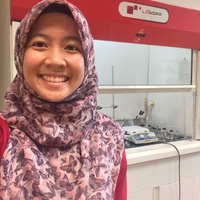Lisa Zaharin
Universiti Malaysia Sabah, School of Education and Social development, Graduate Student
Research Interests:
Research Interests:
Intrinsic motivation is one of the main driving forces for students’ interest and attitude towards learning STEM subjects such as Science, Technology, Engineering and Mathematics (STEM). Unfortunately, students’ interestand attitude... more
Intrinsic motivation is one of the main driving forces for students’ interest and attitude towards learning STEM subjects such as Science, Technology, Engineering and Mathematics (STEM). Unfortunately, students’ interestand attitude towards STEM subjects are on the decline. A continued decline, if unchecked, will affect the number of students’ enrolment into the STEM fields. This study was conducted to investigate the students’ interest, attitude and intrinsic motivation towards learning STEM subjects by appraising the pro educational modules that include assembling and dismantling the minimalist robots and by providing software training to the students. The results of hypothesis testing of P-value generated via Statistical Packages of Social Sciences (SPSS) v2.5 indicate the effectiveness of Minimalist Robot Education Programme. The students’ interest, attitude and intrinsic motivation show a significant difference towards the learning of STEM. The findings also show that all the a...
Research Interests:
Intrinsic motivation is one of the main driving forces for students' interest and attitude towards learning STEM subjects such as Science, Technology, Engineering and Mathematics (STEM). Unfortunately, students' interest and attitude... more
Intrinsic motivation is one of the main driving forces for students' interest and attitude towards learning STEM subjects such as Science, Technology, Engineering and Mathematics (STEM). Unfortunately, students' interest and attitude towards STEM subjects are on the decline. A continued decline, if unchecked, will affect the number of students' enrolment into the STEM fields. This study was conducted to investigate the students' interest, attitude and intrinsic motivation towards learning STEM subjects by appraising the pro educational modules that include assembling and dismantling the minimalist robots and by providing software training to the students. The results of hypothesis testing of P-value generated via Statistical Packages of Social Sciences (SPSS) v2.5 indicate the effectiveness of Minimalist Robot Education Programme. The students' interest, attitude and intrinsic motivation show a significant difference towards the learning of STEM. The findings also show that all the alternative hypotheses: (1) students' interest towards learning STEM is increased as a result of participating in the Minimalist Robotic Education Programme; (2); students' attitude towards learning STEM increased as a result of participating in the Minimalist Robotic Education Programme
